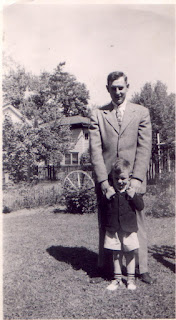Central New York Research. The eclectic ramblings of doing genealogy and growing up in that part of Upstate New York that is the central and Finger Lakes regions. With ancestors all over the northeast and beyond, there will be forays outside the area with trips and news on family history as well as local history.
Wednesday, April 27, 2022
Wednesday, April 13, 2022
Thursday, April 7, 2022
Tuesday, April 5, 2022
Research & Lineage Societies
Quite often when talking with somebody that doesn’t do genealogy, I get asked how far back I’ve researched my family. Now, most of us that have done genealogy for very long, realize how difficult a question this is to answer. Many of us are more interested in doing thorough research that is well documented. We want to know more than just the names and dates of people. Fleshing out people’s stories and learning about their lives takes time and is more interesting than how many generations we can add on behind them.
There’s also the question of which line when we say how far back we have gone. Some are easy to find and document. Those we’ve probably traced back a long way rather quickly. One day I was bored and noticed a line on my particular tree that ended in the mid-1800s. In an afternoon, I was able to trace this woman’s ancestry back from northern New York to the immigrant landing on the shores of the Massachusetts Bay Colony. I had gathered just the basic facts using mostly published sources that I could find on Ancestry.com, but I had the line back several generations. It also solved my curiosity that had arose as I started tracing: this line did not lead to a Mayflower ancestor.
Some people think if you mention a Mayflower ancestor you feel superior to others. Indeed, there are undoubtedly some that do. I don’t, I just find it interesting to find people that were involved in a certain well-known event. I do have at least six ancestors that arrived on the Mayflower but have not joined the Mayflower Society. Part of telling people this is that although others may not have researched their ancestors, they remember studying about the events in school.
I actually have many early settlers in my lines, both good and bad. For example, do you know that there was only one Englishman ever executed for high treason in New England history? Joshua Tifft (1646-1676) during King Phillip’s War. I do not descend from him. However, his father, John, who died trying to rescue him, and his brother Samuel are my direct ancestors. I’ll claim them all, the good and the bad. Often it is the bad who make the more interesting stories to tell!
Another common event that people ask about is the Revolutionary War. The popularity of the DAR (Daughters of the American Revolution) has made people well aware of the connection between this war and genealogy. Lesser known is the male society, the SAR (Sons of the American Revolution). Both have requirements of being a direct descendant of a participant in this war. On the correct side, of course. If your only direct descendant was a Loyalist, you do not qualify for these! However, there are other societies that you would qualify for.
That is the thing with lineage societies. There are so many that someone that researches multiple lines in their family could spend a fortune trying to join and maintain their membership in each society!
Another one that I find interesting is the Flagon and Trencher Society. To belong you must be a direct descendant of a tavern keeper during the Colonial period of what is now the United States. I can probably qualify a couple different ways as I have two known tavern keepers prior to the Revolutionary War, although one may not count as she was a tavern keeper in the Dutch New Netherlands.
It is all an interesting mixture of people when you start researching the various lines.
When asked about my immigrant ancestors, I mention those on the Mayflower. Also, others that helped found some of the early settlements of Milford and Derby in Connecticut. Some people who have more recent ancestors may feel a little put-out about that. I laugh and say, but don’t forget my Grandmother who arrived here at age 19 in 1912! Incidentally, she married my Grandfather, who is a descendant of those early arrivals.
Yes, most of us if we research far enough, will find that we are quite a mixture of people. Early immigrants and recent immigrants. The famous and the unknown. Good upstanding citizens and criminals. All different nationalities are likely to be involved as well.
Subscribe to:
Posts (Atom)
.jpg)
.jpg)
.jpg)
.jpg)






